Study Diploma in Electrical & Electronic Engineering in Malaysia
Electronics and electrical engineers are often confused and the term can be used interchangeably. However, electrical engineers usually focus on the generation and supply of power while electronics engineers traditionally have worked on applying electricity principles to control systems or signal processing. Specialization areas for electrical engineers include electrical equipment

- A specialty within electrical engineering and closely linked to broadcast engineering, telecommunications engineering involves the design of specialized computer and electronics equipment for use in a telecommunications network or infrastructure. These include cellular telephone networks, broadband systems and other cutting-edge technologies.
manufacturing and power systems engineering.
Electronics engineering is a very diverse field and it is currently undergoing expansion as new applications are found for
electronic equipment. This has led to the development of two relatively new fields of engineering - software engineering and mechatronics.
- Software engineers design and modify complex software systems and computer hardware. Mechatronics Engineering combines the disciplines of mechanical and electrical engineering. It is associated with the use of digital computers to control machines and processes. It is also used to create diverse products such as substitutes for human sensors and organs and computer controlled machine tools.
- Mechatronics Engineering is a rapidly developing field and as the world becomes steadily more technologically advanced it will be of increasing importance. Electronic engineers work for companies and government departments that design, construct, and test electronic devices (including computers) or that are involved with their installation.
Entry Requirements for Diploma in Electrical & Electronic Engineering Courses in Malaysia
With 3 credits in SPM including Maths & Science and a Pass in BM & Sejarah, you can go for the Diploma in Electrical
& Electronic Engineering at a top private university in Malaysia. Some universities may require a credit in Physics or Chemistry.
After the 2.5-year diploma, you can continue on to Year 2 of the Degree at the same university or college if the degree course is offered. There is no need to perform exemptions if you continue on to degree at the same university.
If not, you can transfer your diploma credits into another university to enter into Year 2 of the degree for another 3 years depending on the exemptions. It will take about one to three weeks for the university to perform the exemption evaluation. To perform exemptions, you will need to submit the following documents to the university of interest for exemption evaluation:
& Electronic Engineering at a top private university in Malaysia. Some universities may require a credit in Physics or Chemistry.
After the 2.5-year diploma, you can continue on to Year 2 of the Degree at the same university or college if the degree course is offered. There is no need to perform exemptions if you continue on to degree at the same university.
If not, you can transfer your diploma credits into another university to enter into Year 2 of the degree for another 3 years depending on the exemptions. It will take about one to three weeks for the university to perform the exemption evaluation. To perform exemptions, you will need to submit the following documents to the university of interest for exemption evaluation:
- Transcripts for the subjects taken
- Course outline for all subjects taken
- Letter of Completion or Diploma Certificate
- Copy of SPM certificate
PTPN Loan for Diploma in Electrical & Electronic Engineering Course in Malaysia
Please note that there is no PTPN Loan for Foundation. For the Diploma you can apply for the PTPN Loan
Why Study the Diploma instead of Foundation?
If you are sure of what course you want to study for your degree, you can just go straight into the Diploma course. If you are not sure of what you want to study in the degree, go for Foundation because you have one year to decide on what to take for your degree. You can apply for the PTPN Loan for the diploma while there is no loan for the Foundation.
In the diploma you will study subjects related to your course while in the Foundation, you will study general subjects mostly unrelated to your course. Some diploma courses are 2 years while others are 2.5 years.
If it is 2.5 years, you may take longer to complete your degree. If it is a 2-year diploma, then the time taken is the same to complete the degree when you take Foundation.
- SPM (5 relevant credits) - Foundation (1 year) - Degree (4 years)
- SPM (3 relevant credits) - Diploma (2 or 2.5 years) - enter degree Year 2 (3 years)
Diploma in Electrical & Electronic Engineering at Asia Pacific University (APU)
The Diploma in Electrical and Electronic Engineering programme at Asia Pacific University prepares you for careers in the Electrical, Electronics, Telecommunication, and Manufacturing environments. This programme offers a broad-based study in the areas of electrical and electronic engineering.
A range of modules in the electrical and electronic engineering spectrum is provided.
Other skills necessary for the workplace are also provided. These include communication skills and life-long learning skills.
You will be equipped with the knowledge and expertise to face the challenges of business development in a wide range of electrical and electronic industries.
You will be equipped with the knowledge and expertise to face the challenges of business development in a wide range of electrical and electronic industries.
The Electrical & Electronic Engineering diploma programme at APIIT provides a significant amount of hands-on experience. The curriculum requires 6 semesters of laboratory experience in electrical and electronics. Hands on experience provide necessary experience in designing engineering solutions, dealing with implementation issues, and using engineering tools. In addition, you will be exposed with seminars & competitions to be part of the engineering world.
Year 1 Subjects for the Diploma in Electrical and Electronic Engineering at Asia Pacific University
The subjects offered in Year 1 of the Diploma in Electrical and Electronic Engineering programme at Asia Pacific University will enable you to understand the electrical and electronic engineering fundamentals starting with the science of elementary particles called electrons.
You will be able to apply theories and principles of science and mathematics to solve practical technical problems with basic knowledge and skills of the electrical elements, components and devices to construct simple electrical and electronic circuits. There are also modules that provide study skills as well as business and communication and information technology skills.
- Practical English
- Foundation of Engineering Mathematics
- Professional Communications
- Applied Mechanics
- Practical IT Skills
- Business Environment
- Electrical & Electronic Principles
- Engineering Materials
- Engineering Mathematics 1
- Engineering Mathematics 2
Year 2 Subjects for the Diploma in Electrical and Electronic Engineering at Asia Pacific University
The subjects provided in Year 2 of the Diploma in Electrical and Electronic Engineering programme at APU provide you
with knowledge of electrical components, instruments and devices operation and behaviour such as electric and magnetic fields, analogue and digital electronics, machines and control, communication engineering, microprocessor and programming technology. This makes your job opportunities much wider.
- Instrumentation & Measurements
- Control & Automation
- Generation Transmission & Protection
- Microprocessor Systems
- Electrical Machines & Drives
- Organisational Behaviour
- Problem Solving & Program Design Using C
- Analysis of Circuits
- Analogue Electronics
- Digital Electronics
- Communication Engineering Principles
- Design Principles
Upon successful completion of the Diploma in Electrical & Electronic Engineering programme, you will be eligible to progress into any of the following engineering degree programmes offered at Asia Pacific University:
- B. Eng (Hons) in Electrical & Electronic Engineering
- B. Eng (Hons) in Electronic Engineering with a specialism in Information Technology
- B. Eng (Hons) in Telecommunication Engineering
- B. Eng (Hons) in Mechatronic Engineering
Diploma in Electrical & Electronics Engineering course at UCSI University
The Diploma in Electrical & Electronics Engineering course at UCSI University is designed to provide fundamental theoretical
knowledge and practical skills to individuals who are eager to join the industry at an earlier stage.
The programme equips students with the relevant academic and “hands-on” experience to enable them to adapt quickly to their jobs after graduation, and provides flexibility, motivation and the essential knowledge and skills as a solid foundation for further studies.
Upon successful completion of the Diploma in Electrical & Electronics programme at UCSI University, graduates may continue on to Year 2 of any of the engineering degree programmes offered at UCSI University:
- BEng (Hons) Chemical Engineering
- BEng (Hons) Civil Engineering
- BEng (Hons) Communication & Electronic Engineering
- BEng (Hons) Electrical & Electronic Engineering
- BEng (Hons) Mechanical Engineering
- BEng (Hons) Mechatronic Engineering
- BEng (Hons) Petroleum Engineering
In a nutshell, this programme incorporates design projects – that aim to improve skills in design, problem-solving and report-writing – and furnishes students with the necessary skills, knowledge and expertise for challenges in various electrical and electronic industries.
The students are also required to undergo a minimum of three months’ industrial training under UCSI University’s Co-operative Placement scheme to learn and familiarize themselves with a real-life working environment.
Programme Details for the Diploma in Electrical & Electronics Engineering course at UCSI University
The duration of the programme is approximately 2 years and 4 months.
In each year there are two long-semesters consisting of 14 weeks of instruction with 2 weeks of examinations, and one short-semester consisting of 7 weeks of instruction with 1 week of examinations. The long-semesters start in January and May, while the short-semester starts in September.
In the months of November & December students undergo industrial training under the Co-Operative Placement Scheme to learn and to familiarize themselves with real life working environment. In addition, students also undertake a design project near the end of their studies, which aids in developing the students’ skills in design, problem solving and report writing.
The number of contact hours per course per week depends on the credit and teaching methodology of each course. Each credit is approximately equivalent to 1 hour of class, or 2 hours of labs per week.
Assessments for the Diploma in Electrical & Electronics Engineering course at UCSI University
The teaching and learning strategies and assessment are designed depending on and according to the nature of course or topic being taught or investigated. The school of Engineering implements different methods and styles of teaching and learning and assessment to ensure the successful achievement of the learning outcomes of its programmes, that includes:
- Ordinary classroom lectures
- Group tutorials
- Laboratory works
- Seminars and eforums
- Directed and self learning
- Invited guest lectures
- Industrial visits
Year 1 Subjects for the Diploma in Electrical & Electronics Engineering course at UCSI University
- Engineering Physics 1 *
- Engineering Mathematics 1
- Computer Applications (Computing Essentials)
- Electrical and Electronic Principles *
- Engineering Physics 2 *
- Circuit Analysis 1 *
- Engineering Mathematics 2
- Engineering Design *
- Digital Electronics *
Year 2 Subjects for the Diploma in Electrical & Electronics Engineering course at UCSI University
- Engineering Principles
- Applied Computing (Computing for Engineers) *
- Circuit Analysis 2 *
- Electrical Technology 1 *
- Electrical Technology 2 *
- Engineering Mathematics 3
- Telecommunication Principles *
- Industrial Studies
- Project A
- Analogue Electronics *
- Co-operative Placement 2
Year 3 Subjects for the Diploma in Electrical & Electronics Engineering course at UCSI University
- Control & Instrumentation Systems *
- Microprocessor Based Systems *
- Project B
Diploma in Electrical and Electronics Engineering at KDU University College
Learn all about the concepts and applications of power generation, transmission and distribution in this electrical & electronic engineering diploma at KDU University College. With an emphasis on the utilisation and control of electrical energy and technology, this course will provide you with a strong foundation in both theory and practical training.
You will be able to acquire valuable hands-on experience through projects throughout the course and particularly through the industrial training programme offered in the second year.
Whether you join the job market after completing this diploma course or continue to study for a degree, you will be well-prepared and ready for the next step in your career path.
Upon completion of the Diploma in Electrical & Electronics Engineering at KDU University College, graduates can continue on to the Bachelor of Engineering (Hons) in Electrical and Electronic Engineering at KDU.
Year 1 Subjects for the Diploma in Electrical & Electronics Engineering at KDU University College
- Analogue Electronics
- Computer Programming
- Electric Circuits
- Engineering Drawing & CAD
- Engineering Mathematics I & II
- Engineering Physics
- Microcontroller Technology
- Personal Development & Leadership Skills I & II
- Principles of Electromagnetic Fields
- Tertiary English I & II
- Telecommunication Systems Fundamentals
Year 2 Subjects for the Diploma in Electrical & Electronics Engineering at KDU University College
- Digital Electronics
- Electric Machines
- Electric Power System Fundamentals
- Electronic Instrumentation & Control Systems
- Engineering Management, Practices & Ethics
- Engineering Mathematics III
- Engineering Project
- Fundamentals of System Modelling
- Industrial Project
- Industrial Training
- Microcontroller System Design & Applications
- Power Electronics
- Power Generation, Transmission & Distribution
Diploma in Electrical & Electronic Engineering at Nilai University
This internationally-recognised diploma in electrical & electronic engineering at Nilai University equips you with the knowledge
and technical skills for an exciting career in the electrical and electronics industry by employing a problem-based industrial approach to train you to effectively design, build and test electrical and electronic devices.
Graduates of this programme are qualified to continue into the Electrical & Electronic Engineering degree programme at Nilai University or with our reputable partner universities.
The broad-based modules give you the flexibility to pursue a degree in various other areas of engineering specialisations such as aerospace, computer systems, electrical and electronic, and many more.
Nilai University's engineering programmes feature licensed MATLAB, Simulink, Multisim, Autocad, SolidWorks, Ansys, CNC Simulator and Emulator software to study the advances in the field of Electrical and Electronics, Mechanical, Mechatronics, and Automotive Engineering and to take up in-house projects.
Students will undergo training as part of the syllabus on Solidworks and Anysys software; the former will teach students how to create components with parametic methods and to create assemblies while the latter will impart knowledge on computer aided engineering analysis.
You are given the opportunity to take the Dale Carnegie & the Outward Bound courses at Nilai University
Education For All Financial Aid at Nilai University
If your family income is RM4,000 or below, you are eligible for the Education For All Financial with terms and conditions at Nilai
University. Students need only pay a non-refundable fee of RM650 and the rest of your fees will be cover under the PTPN Loan. Any extra tuition fees not covered by the PTPN Loan is waived by Nilai University.
You must only apply for the diploma or degree programmes as the PTPN Loan does not cover Foundation courses so the EFA does not cover Foundation. The EFA is not applicable for the Diploma in Aircraft Maintenance as well.
To apply you must fill up the Application Form, the EFA Form, provide 1 certified copy of the SPM/STPM/UEC results and parents' 3 months salary slips, BE and J Forms.
EduSpiral Consultant Services- Your Personal Online Education Advisor
Established since 2009, EduSpiral Consultant Services helps provide information and counselling on courses and universities inMalaysia. EduSpiral Consultant Services also represents Northampton University, UK, MDIS Singapore and Hong Kong Polytechnic University.
EduSpiral Consultant Services represents the best colleges and universities in Malaysia offering a wide range of choices for
students to choose from. These colleges and universities offer value for money in the quality of education and excellent facilities that you get.
These universities and colleges are chosen by EduSpiral because they represent the best in their fields in Malaysia and affordable. EduSpiral provides in-depth information and counseling on their courses so that students are able to make the right choice.
If you are still not sure what to study, please contact us and we will send you a free EduSpiral Career Assessment Form.
Please contact us for more details.
- Whatsapp: +601111408838
- Wechat/Line: EduSpiral88
- Instagram: www.instagram.com/eduspiral
- Foursquare: www.foursquare.com/eduspiral
- Youtube: www.youtube.com/eduspiral
- Follow EduSpiral: www.twitter.com/eduspiral
- Be my friend: www.facebook.com/eduspiral1
- Like EduSpiral: www.facebook.com/eduspiralcs
- Message me: info@eduspiral.com
- Website: www.eduspiral.com

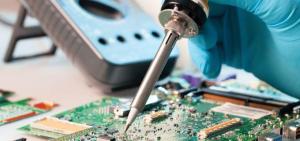
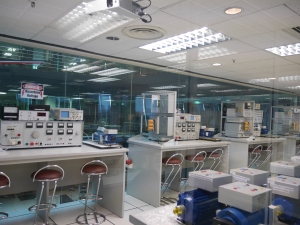
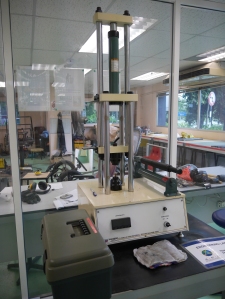
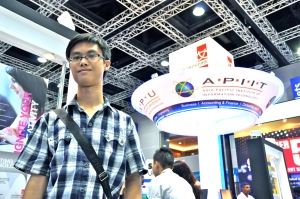
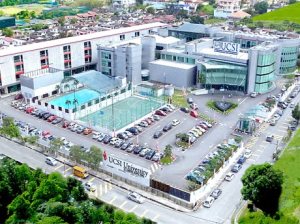
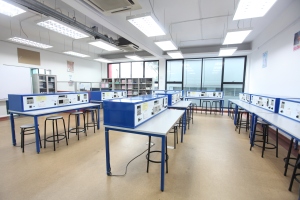

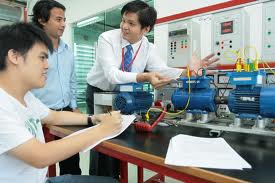


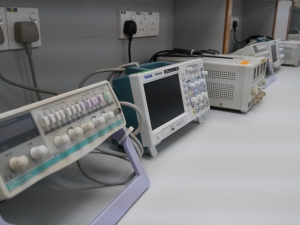
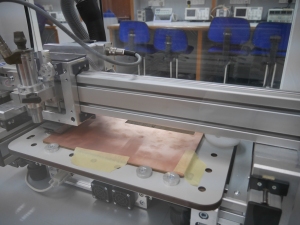
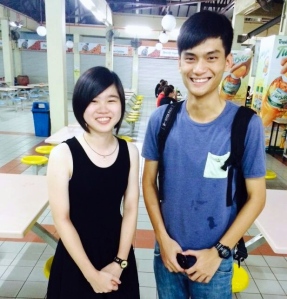

No comments:
Post a Comment
Please leave your comments and questions